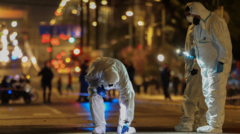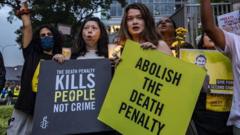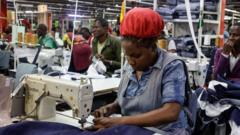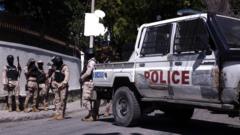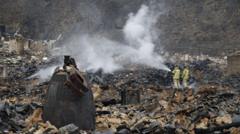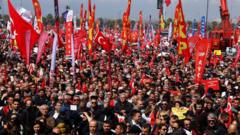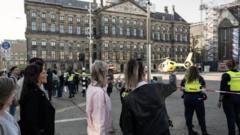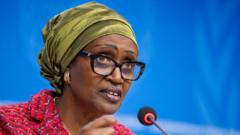The national high-school drama competition in Kenya took a tumultuous turn as police fired tear gas to disperse crowds amid protests against the disqualification of a politically charged play, "Echoes of War." The incident, which reflects the rising tensions between the state and youth activism, has sparked public debate over free expression and the role of the police at cultural events.
Tear Gas and Theatrical Tensions at Kenya's National High-School Drama Competition
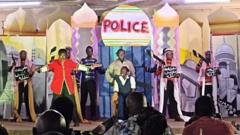
Tear Gas and Theatrical Tensions at Kenya's National High-School Drama Competition
A controversial play about youth empowerment and governance ignites unrest leading to police intervention at a national drama festival in Nakuru, Kenya.
Kenya's national high-school drama competition recently descended into chaos when police resorted to tear gas to disperse a crowd gathered to witness a provocative play, "Echoes of War." The production, performed by students from Butere Girls School, addresses pressing themes of governance in the digital age and the crucial role of youth in advocating for societal transformation, drawing parallels with the country's ongoing political climate.
The play was initially disqualified from the festival under ambiguous circumstances. However, a subsequent High Court ruling mandated its inclusion, highlighting issues of artistic freedom and the delicate balance between governance and expression in Kenya. Tensions escalated in Nakuru when students walked out of the venue, expressing their frustration over the detention of the play's author, Cleophas Malala, a former senator who had been barred from attending the final rehearsal.
After his release without formal charges, Malala praised the students' sense of protest, saying, "The young girls of Butere Girls’ have exercised an act of heroic restoration." As students left the hall, which was surrounded by anti-riot police, they voiced their discontent, questioning who they would perform for in an empty venue.
Education Minister Julius Ogamba raised concerns regarding Malala's involvement, noting that he was neither a teacher nor an official director in the competition, a point that added to the controversy. Meanwhile, human rights organization Amnesty International condemned the police's actions as indicative of a broader trend of state repression against free expression.
Opposition leader Kalonzo Musyoka criticized the police response, highlighting the bravery of the students in their refusal to perform under such conditions. The prevailing public sentiment, amplified by the opposition party Orange Democratic Movement (ODM), called for fairness, demanding the students be allowed to showcase their work like their competitors.
"Echoes of War" symbolizes a generational clash in Kenya, with its youthful protagonists advocating for change through innovation and technology, mirroring the turbulence that has characterized youth-led protests in the past year. As the situation unfolds, it raises vital questions about the intersection of art, politics, and the rights of young people in demanding a voice in their future.

